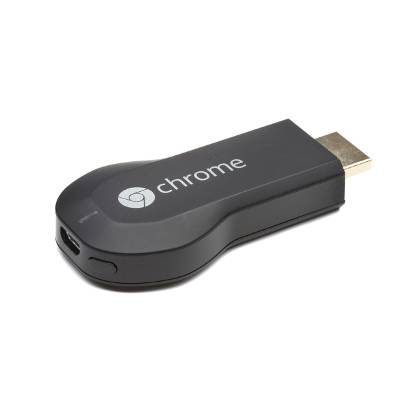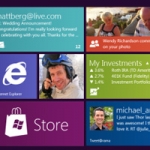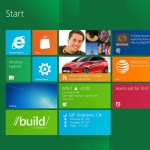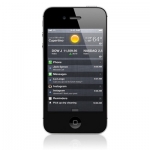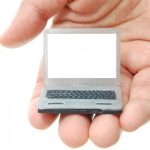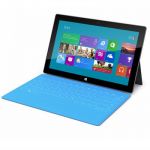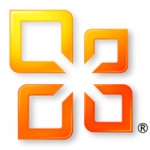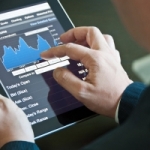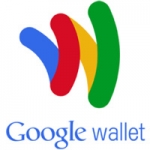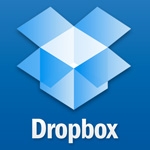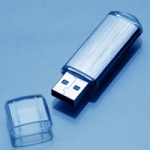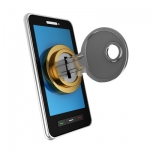The IoT, or Internet of Things, is everywhere. There’s a relatively good chance that a device that would be part of the IoT is within your reach right now, perhaps even on your person. Businesses of all kinds use the IoT for various purposes as well, but behind this usage lies significant risk from cyberthreats, and a shocking number of businesses seem to accept this risk without much concern… as in, the vast majority of surveyed businesses utilizing the IoT demonstrated a lack of protection, but seemed not to be bothered by it.
Directive Blogs
Foldable phones undeniably saw a very slow start when they were introduced a few years ago, high prices and horror stories about their fragility scaring away all but the earliest of early adopters. However, thanks to an enthusiastic fanbase, the concept has persisted and has become a legitimate option amongst flagship devices.
Let’s consider some of the predictions that have been made surrounding the future of the foldable smartphone market, and why business users might be drawn to the flexible form factor.
The IoT—the Internet of Things—is a fascinating technology, as it exemplifies just how much can be accomplished when Internet connectivity is used to augment the capabilities of otherwise “dumb” devices. Unfortunately, as fascinating as it is, the IoT is also infamous for its security issues…a reputation that attackers have been perpetuating as these devices grow more common.
 The holidays are again upon us and if you are looking for the perfect gift for your favorite business professional, you don’t have to look too far. There are more consumer electronics available today than ever before, and most of them have some sort of novelty attached to them. We have made a list of four gifts that are not only cool, they serve a practical purpose and will probably avoid being re-gifted or recycled.
The holidays are again upon us and if you are looking for the perfect gift for your favorite business professional, you don’t have to look too far. There are more consumer electronics available today than ever before, and most of them have some sort of novelty attached to them. We have made a list of four gifts that are not only cool, they serve a practical purpose and will probably avoid being re-gifted or recycled.
Whether or not you believe acronyms are an acceptable form of speech, some people might use them habitually or instinctively even for business communications. Of course, they don’t have much place in this context, but habits are hard to break. To address this issue, one innovative thinker has created a tool that can help determine if the acronym “LOL” is sincere or not.
The holiday season is getting busier and busier every year and with less and less time afforded to shopping and getting ready for the holiday, you may have overlooked that special someone on your holiday shopping list. This week, we give you three gadgets that would be really nice last minute gifts for that technology lover in your life
It probably isn’t a question you’ve put much thought to, but tell me: who do you think feels the greatest impact from card skimming schemes, where a payment card’s data is captured so a cybercriminal can make use of the card’s associated account? While it isn’t a good situation for anyone, some are impacted more than others.
The holidays are some of the best times for technology lovers. Not only do manufacturers deliver the coolest tech for the busiest retail time of the year, there is a good chance that you may be gifted some of it. This week, we thought we would take a look at three popular gadgets that are flying off the shelves this holiday season.
For a very long time, Apple has been requested to share a workaround for their platform security with law enforcement, which the company has refused outright. Their argument has been that doing so would inherently undermine their lauded security. Well, the feds have given up asking, because they went ahead and developed a workaround themselves… and in doing so, have revealed that iOS isn’t quite as secure as it was purported to be.
The strangest year in our lives is coming to a close and the holidays figure to be just as strange. With the COVID-19 pandemic still roaring away, there probably won’t be a lot of the events that are typical this time of year. That doesn’t have to ruin the time of year, however. Today, we thought that we would take a look at five cool tech gadgets and services that won’t break the bank, but will also be a cool addition under the tree or for your secret santa.
While it may sound strange coming from a managed service provider, there is some wisdom to the adage, “if it ain’t broke, don’t fix it.” We know, we know… it sounds a little hypocritical for us to say something like this, when we spend so much time touting the values of proactive maintenance and similar strategies. However, this now-cliché statement certainly holds water, as exemplified by many modern technologies—including the Boeing 747.
Before 2020, remote work was already growing, albeit much more slowly than we see this year (for obvious reasons), but now that just as many workers are working from home (or have the option to work remotely) as are working in the office, we’re beginning to see that it is a functional business model. With many remote workers fairly new to it, we thought we’d see what gadgets members of the Gig Economy are using.
April 22nd is Earth Day, which began 50 years ago as a means to hold businesses and corporations accountable for the damage that their highly industrialized pollution was introducing into the world. As the digital age has introduced a new environmental concern, it only seems prudent to address the challenge we face today: e-waste.
The people that support a business’ information systems are widely renowned as a bunch of nerds sitting in a basement office waiting for someone that matters calls them upstairs. Now, we think this characterization is unfair (of course), but since our jobs are so technical, it can be hard to relate with clients all the time. Fortunately for us, the most useful tool we have in our repertoire is excruciatingly simple. To fix your computer problem, have you tried turning it off, and turning it back on?
We typically use this blog to share information about the technology that a business should be leveraging - but in this blog, we’ve decided to focus on a different group that is increasingly reliant on technology: students. As these pupils will someday make up the workforce and almost certainly utilize technology on a daily basis, it is important that their education reflects this increase in their curriculums. Here, we’ll consider some of the effects (good and bad) that this has had.
The Chromecast, Google’s offer to the growing streaming market, is a pretty handy device - even in the business setting. I know, I know, it is a consumer device, but some of its capabilities directly translate to professional use. Here, we’ll walk you through the process of setting up your Chromecast, four useful-for-business features, and the process of resetting your Chromecast if it ever needs it.
For much of the last five years, we’ve been told that the Internet of Things was going to be the most important innovation since broadband Internet was introduced. This growth, while its largely happening under the proverbial radar, is happening. There are around seven billion “smart” devices in 2019 with expectations that it will be three times that by 2025. With that many Internet-connected devices, there are bound to be some that come with vulnerabilities, whether it comes from being designed poorly or not frequently updated with modern threat definitions. Today, we’ll take a look to see if the Internet of Things should be considered a threat to your business.
Wearables have been on the market for quite some time, though the definition of them has certainly changed over the years. Wearables have become far more capable in the past decade, bringing with them a barrage of other issues that need to be addressed. Chief among them is how these devices should be regulated, and by whom.
Bring Your Own Device is a hot trend in today’s business environment, as it creates a ton of opportunities for businesses to cut costs. However, this is only true if you implement a BYOD policy that your organization can take advantage of, as it creates considerable problems for your unprepared businesses.
We hope we aren’t dating ourselves too much by mentioning computer punch cards, but they were once the means of inputting data into a computing device… at least, until the now-ubiquitous mouse and keyboard came into the scene. This variety of interfacing with our devices now seems to be one of the few ways to practically use them. However, other interfaces have emerged - do any of them stand a chance of unseating the keyboard and mouse?
Does anyone remember computer punch cards? Does this date us? Either way, since computing punch cards went the way of the dinosaur, there has been some version of the keyboard and mouse as we know them today. These interfacing tools have become so ingrained into our minds that it is frankly difficult to imagine a computer without them... But this begs the question, will there ever be a user interface impressionable enough to replace them?
It’s a familiar scene from many science fiction properties: a person approaches a locked door. They unlock it, but rather than using a key, a red beam scans their eye to confirm their identity and permit them access. The thing is, this and similar biometric authentication technologies are likely to begin appearing in real-world businesses sooner than later. Let’s discuss:
Oh no! You start slapping your pockets, already knowing what you’re about to confirm--your mobile device is missing. With the reliance we have on these devices, losing yours is enough to send you into a relative panic. However, this panic may be avoided by implementing a reliable solution specifically for locating a lost device.
Windows 8? Doesn't it feel like Windows 7 just came out? Windows 7 isn't being replaced anytime soon; the latest operating system by Microsoft hasn't even been out for two years, but that doesn't mean Microsoft isn't cooking up their next incarnation. Microsoft has always kept small businesses in mind as well as the residential consumer, so will Windows 8 stick with the same trend?
There's a lot of buzz around Windows 8 for technology lovers, and for good reason. Microsoft is making it's next operating system dramatically different than previous incantations, and it sounds like we'll be seeing a lot of this OS in the future on a lot of different platforms, ranging from desktops and notebooks to tablets, and possibly even more.
Over the past couple years we've seen a huge shift in the reliability and functionality of the tablet PC. What was once was a struggling market of just a few overpriced, bulky, devices that were neither practical nor stylish has become the next big consumer product. Tablets have been making it into the business world, supplementing smartphones as a new addition to mobile arsenals. We're going to highlight the best two tablets on the market that you can buy right now.
The mobile smart phone market is certainly a healthy one, and powerful devices are getting into more hands (for both consumers and businesses). There are a few great selections to choose from; RIM's BlackBerry, Microsoft's Windows 7, Google's Android OS, and Apple's iPhone. The latest incarnation of the Apple iPhone hits store shelves today, although from first glance it looks the same as the previous iPhone 4. Let's take a look at some of the differences.
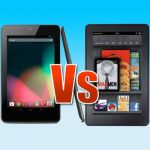 When making a tablet purchase for your business, there are many factors to take into account, such as portability, battery life, screen resolution and more. However, the most important factors are whether or not the device will actually help you get more done. Here are the Nexus 7 and Kindle Fire tablets side-by-side for your comparison.
When making a tablet purchase for your business, there are many factors to take into account, such as portability, battery life, screen resolution and more. However, the most important factors are whether or not the device will actually help you get more done. Here are the Nexus 7 and Kindle Fire tablets side-by-side for your comparison.
We've been talking a bit about the benefits of going mobile, especially for business owners who want to get more done. One of the best benefits of a laptop computer is portability, which leads into its greatest weakness; it's easy to steal. According to the FBI, over 1 million laptops are stolen each year. If you are using your laptop for business, you'll want to take action ahead of time and employ some protective countermeasures to keep your business safe. We'll even go over some ways you can recover your stolen laptop.
Apple CEO Steve Jobs has resigned from the consumer electronic company. Leaving behind a legacy that has made Apple considered ahead of the curve technology-wise several times, and has changed the game in the industries that he's touched. While Microsoft still rules the personal computer market globally towering over OSX's 8.3% market share, Apple has certainly played a major roll in paving a path to high-end electronics and devices over the past decade that has raised the bar for companies, and has even created a few new industries to boot.
 The consumer electronics market is inundated with countless mobile devices with flashy interfaces, sleek profiles, and names that are more ridiculous than most car makes. Understandably, it's hard to keep up and when picking out a smartphone for yourself or your business, the demos at the store don't give you much of an insight. Here's an extensive cheat sheet on what to look for when making a new smartphone purchase.
The consumer electronics market is inundated with countless mobile devices with flashy interfaces, sleek profiles, and names that are more ridiculous than most car makes. Understandably, it's hard to keep up and when picking out a smartphone for yourself or your business, the demos at the store don't give you much of an insight. Here's an extensive cheat sheet on what to look for when making a new smartphone purchase.
Ever since the mid-1990s employees have been taking advantage of personal gadgets to help them get work done faster. Remember the PDAs and Palm Pilots from a decade and a half ago? Even though many companies weren't quick to establish policies to protect corporate data, tech savvy users were able to sync contacts, schedules, email, and company files to their mobile device. These days, mobile devices are in the hands of many more users, but there are ways to provide security without sacrificing your employees rights to their personal device.
As technology gets more advanced, more of it can get crammed into tinier spaces. Mobile devices used to be heavy, clunky items that could just barely get the job done; they just didn't have the oomph that your desktop workstation had. Today business owners are adopting portable powerhouses like tablets and high-end smart phones to stay connected, but for those on the go often, a laptop or netbook is often a good way to go as well. The Laptop/Netbook debate has gone on since Netbooks first emerged on the market, so let's take a look at the benefits of both.
Microsoft Office still holds a very strong position in the small business world despite some serious competition from Google, who boasts having their software package hosted online. The latest incarnation of the Microsoft Office suite, named Office 365, is designed to rival Google's offering. Today we're going to talk about Microsoft's hosted productivity software and see what the pros and cons are for small businesses.
Tablets are definitely becoming a staple in the consumer electronics world. For the longest time, the tablet PC was an expensive, clunky device that just didn't wow consumers. Some businesses had adopted tablets back in the day, but they were difficult to use, hard to support, and they simply didn't perform for the price tag. However, like many consumer electronics, Apple reinvigorated the tablet market with the original iPad, and now it would seem tablets are here to stay. The question is, are they right for businesses?
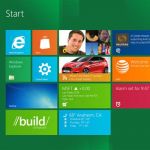 We've seen a pattern over the years as Microsoft releases operating systems where every other operating system is great, while the releases in between are somewhat lacking. Windows 98 was pretty solid, as was XP, however the middle-child Windows ME? Not so much. This kind of progression is usually reserved for Star Trek films. What does this mean for Windows 8, the successor of the great Windows 7?
We've seen a pattern over the years as Microsoft releases operating systems where every other operating system is great, while the releases in between are somewhat lacking. Windows 98 was pretty solid, as was XP, however the middle-child Windows ME? Not so much. This kind of progression is usually reserved for Star Trek films. What does this mean for Windows 8, the successor of the great Windows 7?
The Internet giant Google is well know as being the primary search engine on the Internet and the definer of many web standards. The Big G isn't afraid to trek into new and exciting verticals. Google Wallet is one of those endeavors. Google states that Google Wallet has been designed for an open commerce ecosystem. Their goal is to eventually replace the cards that you keep in your wallet. Since Google wallet is a mobile application it can store as many cards as you want without having to carry multiple cards.
If you haven't heard of Dropbox, you are in for a real treat, especially if you like making it extremely easy to access certain files. Dropbox is a service that provides secure file hosting and synchronization between multiple computers and devices so you can quickly access the data you need most no matter where you are, and when you get back to your main workstation, the updated version of the file will be there waiting. Did I mention Dropbox has a free version? Hit the jump to learn why we love this service.
Small business owners are discovering they don't need to be chained to their desk to use their computer, and are finding it much easier to be productive with the ability to take their workstation with them where ever they go. The concept isn't new, but the trend hasn't caught on for a lot of small businesses. Business owners who have ditched their desktop for a laptop have a whole world of benefits. Let's take a look at what some of those benefits are.
Techies get pretty excited over neat new gadgets and integrating them into day-to-day life, so when we heard about Sony's new SmartWatch, it caught our attention. Will smart watches become the next thing in the not-so-distant future or will they become flops like New Coke and Betamax?
We're in an interesting era. Consumer electronics have been changing the way we communicate, socialize, and get things done. We've all experienced a recent huge evolution in the communication world with the explosion of mobile phones, with more than 4.6 billion mobile subscribers worldwide. Our technology is getting smaller and much more capable, but does that mean we'll be moving away from the typical computer-and-desk to get most of our work done?
USB thumb drives are fantastic. Small, portable, fast, and highly compatible; these devices make it easy to transfer files and documents from one place to another. If you are burning the midnight oil working on a presentation or document from home, a thumb drive is a fast, cheap solution for grabbing those files and taking them from one device to another. Of course, there are plenty of other alternate ways to move files that are even easier and even more fool proof (how many of you have lost a thumb drive or let one go through the wash?), so the thumb drive has been becoming less popular for businesses. If you hate to see perfectly good technology go to waste, check out these 3 tricks that give new life to your old thumb drive.
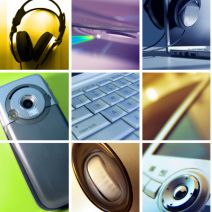 The holidays are getting closer, and picking the right gift for someone is only becoming a more stressful activity. To make things a little easier for you, we’ve found some gadgets that might make the perfect gift for that person on your list who has a particular interest. This blog will go over some of these interests and the gifts that might make their holiday.
The holidays are getting closer, and picking the right gift for someone is only becoming a more stressful activity. To make things a little easier for you, we’ve found some gadgets that might make the perfect gift for that person on your list who has a particular interest. This blog will go over some of these interests and the gifts that might make their holiday.
 With technology being so important in the modern office, there are thousands of gadgets produced each year that are designed to work with existing technology to deliver marginal-to-significant increases to an individual’s productivity. Each year, many of these gadgets fail in some way or fall out of public consciousness quickly, becoming nothing but the answer to a trivia question a decade from now at your favorite watering hole.
With technology being so important in the modern office, there are thousands of gadgets produced each year that are designed to work with existing technology to deliver marginal-to-significant increases to an individual’s productivity. Each year, many of these gadgets fail in some way or fall out of public consciousness quickly, becoming nothing but the answer to a trivia question a decade from now at your favorite watering hole.
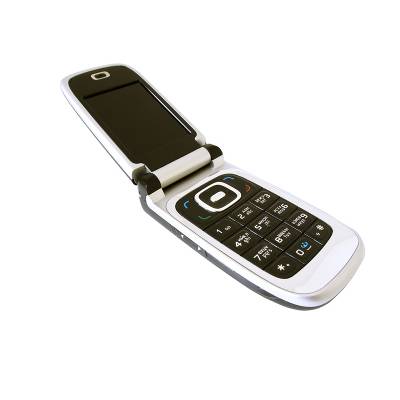 Ten years ago, the world was a different place. In the technology world, Gmail was first introduced, and North Korea banned mobile phones. But while North Korea banned them, just south across the country’s border was the ITU Telecom Asia expo in Busan, South Korea, where the future of the mobile phone was bright. How did they think the cell phone of the future would pan out?
Ten years ago, the world was a different place. In the technology world, Gmail was first introduced, and North Korea banned mobile phones. But while North Korea banned them, just south across the country’s border was the ITU Telecom Asia expo in Busan, South Korea, where the future of the mobile phone was bright. How did they think the cell phone of the future would pan out?
 It's time once again for holiday shopping, and you've got a plethora of technology choices before you. With so many options, it's easy to get confused and grab the first thing you come across. To help you avoid the stress of shopping for technology this holiday season, we've prepared for you this guide so you can be sure that you're purchasing the best item for people on your list.
It's time once again for holiday shopping, and you've got a plethora of technology choices before you. With so many options, it's easy to get confused and grab the first thing you come across. To help you avoid the stress of shopping for technology this holiday season, we've prepared for you this guide so you can be sure that you're purchasing the best item for people on your list.
 According to a new study from the International Data Corporation, tablets are expected to outsell PCs for the first time in the fourth quarter of 2014. While mobile device sales have been trending this way for years, this is the first time the mighty PC will be dethroned by a gadget. What does this mean for your business?
According to a new study from the International Data Corporation, tablets are expected to outsell PCs for the first time in the fourth quarter of 2014. While mobile device sales have been trending this way for years, this is the first time the mighty PC will be dethroned by a gadget. What does this mean for your business?
 Every once ina while, a radical piece of technology is introduced to the market that has the potential to change everything. Over the last half century alone, digital music, cell phones, GPS technology, PCs, and much more hit the market and changed the way technology is incorporated into our daily lives and workplaces. Is Google Glass the next revolutionary gadget?
Every once ina while, a radical piece of technology is introduced to the market that has the potential to change everything. Over the last half century alone, digital music, cell phones, GPS technology, PCs, and much more hit the market and changed the way technology is incorporated into our daily lives and workplaces. Is Google Glass the next revolutionary gadget?
 You have probably already heard about Apple Inc.'s latest iPhone innovations; exciting new products that have the potential of revolutionizing your business workday. The two new models of iPhone will come with the opportunity to simplify tasks, be better organized, and have more fun with your daily routine!
You have probably already heard about Apple Inc.'s latest iPhone innovations; exciting new products that have the potential of revolutionizing your business workday. The two new models of iPhone will come with the opportunity to simplify tasks, be better organized, and have more fun with your daily routine!
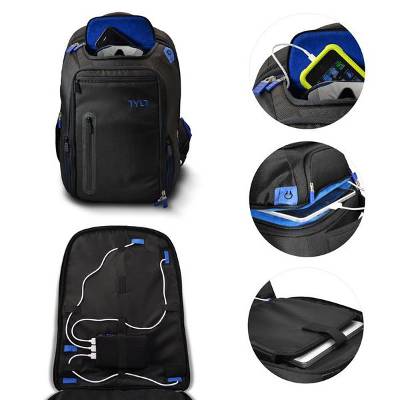 The latest technology trend is wearable gadgets. Devices like smart watches and Google Glass are worn for easy transportation, but most wearable tech users will not use their smart watch as their main device; instead it will complement their laptop, tablet, smartphone, and other non-wearable technology. The TYLT Energi+ backpack is a solution that lets you wear all of your devices.
The latest technology trend is wearable gadgets. Devices like smart watches and Google Glass are worn for easy transportation, but most wearable tech users will not use their smart watch as their main device; instead it will complement their laptop, tablet, smartphone, and other non-wearable technology. The TYLT Energi+ backpack is a solution that lets you wear all of your devices.
 We are smack-dab in a mobile revolution. With any large-scale societal change brought on by technology, there are growing pains involved. Nowhere is this more evident than in the business world. How can you make this major technological shift benefit your business? Consider that the individuals that work in your office have indubitably been in open competition in their acquisitions of the newest mobile devices. Since they are buying them anyway, determining ways to harness the power of these devices to work for your company’s benefit is a sound strategy. Here are a list of some of the top-selling mobile devices of 2012 and what each manufacturer has on the horizon for 2013.
We are smack-dab in a mobile revolution. With any large-scale societal change brought on by technology, there are growing pains involved. Nowhere is this more evident than in the business world. How can you make this major technological shift benefit your business? Consider that the individuals that work in your office have indubitably been in open competition in their acquisitions of the newest mobile devices. Since they are buying them anyway, determining ways to harness the power of these devices to work for your company’s benefit is a sound strategy. Here are a list of some of the top-selling mobile devices of 2012 and what each manufacturer has on the horizon for 2013.
 In part one of Vanity IT, we covered the numerous high-powered handsets that are on the market and available for users to add a degree of productivity that had been simply unavailable before. While smartphones are the most used mobile device by far, many people are looking to the larger devices to accomplish tasks on the go. Some companies are beginning to issue devices to their employees in a concerted effort to take advantage of the flexibility that these larger mobile devices give them.
In part one of Vanity IT, we covered the numerous high-powered handsets that are on the market and available for users to add a degree of productivity that had been simply unavailable before. While smartphones are the most used mobile device by far, many people are looking to the larger devices to accomplish tasks on the go. Some companies are beginning to issue devices to their employees in a concerted effort to take advantage of the flexibility that these larger mobile devices give them.
 We are all familiar with the black and white pictures of old warehouse-sized supercomputers. These machines are now obsolete and we have way more power today sitting on our desks. The most recent supercomputer to be disassembled due to irrelevance was not an old computer made of tubes and pulleys, but rather, it was from 2008.
We are all familiar with the black and white pictures of old warehouse-sized supercomputers. These machines are now obsolete and we have way more power today sitting on our desks. The most recent supercomputer to be disassembled due to irrelevance was not an old computer made of tubes and pulleys, but rather, it was from 2008.
 The consumer adaptation of mobile devices continues to skyrocket. In America, there is a 46% ownership rate of smartphones among adults, this according to Pew Research. Tablets are also a booming market, projected to sell 1.2 billion units in 2013. If your business is not taking advantage of this trend, then you may be missing out on a golden opportunity.
The consumer adaptation of mobile devices continues to skyrocket. In America, there is a 46% ownership rate of smartphones among adults, this according to Pew Research. Tablets are also a booming market, projected to sell 1.2 billion units in 2013. If your business is not taking advantage of this trend, then you may be missing out on a golden opportunity.
 Are you enjoying the benefits of using multiple monitors? Once you have experienced the power of using more than two or more monitors, it is Diffficult to go back to using just one. As great as multiple monitors are, they can be distracting and consume extra power. Diff Displays is a new tech that takes care of both of these issues.
Are you enjoying the benefits of using multiple monitors? Once you have experienced the power of using more than two or more monitors, it is Diffficult to go back to using just one. As great as multiple monitors are, they can be distracting and consume extra power. Diff Displays is a new tech that takes care of both of these issues.
 Bring Your Own Device (BYOD), is changing the look and feel of the modern office. As the ownership rate of mobile devices among American adults creeps closer to reaching 50%, more gadgets are showing up around the office, and they are being used to get work done! If you have yet to embrace BYOD in your office, then you will want consider these 3 advantages.
Bring Your Own Device (BYOD), is changing the look and feel of the modern office. As the ownership rate of mobile devices among American adults creeps closer to reaching 50%, more gadgets are showing up around the office, and they are being used to get work done! If you have yet to embrace BYOD in your office, then you will want consider these 3 advantages.
 Every generation improves the technology of the previous generation. Sometimes technology can improve at such a rapid rate that it can make other technologies obsolete. It takes a bit of know how to determine which technologies will last and which ones are just fads. We are here to help you make sense of all of these rapid changes.
Every generation improves the technology of the previous generation. Sometimes technology can improve at such a rapid rate that it can make other technologies obsolete. It takes a bit of know how to determine which technologies will last and which ones are just fads. We are here to help you make sense of all of these rapid changes.
 Many tech-savvy professionals have labeled tablets merely "content consumption" devices. This may have been true initially, but now with the productivity applications that have been developed using cloud computing, tablets can now be used to do more than just watch videos and surf the web. In this respect, the mobile computing revolution has finally made it to the workplace. Employers and employees alike are beginning to utilize mobile devices such as tablets and smartphones as a compliment to their standard office technology to improve productivity.
Many tech-savvy professionals have labeled tablets merely "content consumption" devices. This may have been true initially, but now with the productivity applications that have been developed using cloud computing, tablets can now be used to do more than just watch videos and surf the web. In this respect, the mobile computing revolution has finally made it to the workplace. Employers and employees alike are beginning to utilize mobile devices such as tablets and smartphones as a compliment to their standard office technology to improve productivity.
 Every enterprise, whether it is a successful one or not, has to deal with its fair share of adversity. One of the most rampant difficulties a business is forced to deal with is the necessary ability to secure prompt payment for the goods and services it provides its customers. For small and medium-sized businesses, or even one-man bands, they likely do not have the deep pockets many larger organizations have. Not being able to timely collect income can make sustaining business operations all but impossible. With remote payment applications that are now available for mobile devices, collecting crucial revenue at a mobile point-of-sale is making collecting that is money easier.
Every enterprise, whether it is a successful one or not, has to deal with its fair share of adversity. One of the most rampant difficulties a business is forced to deal with is the necessary ability to secure prompt payment for the goods and services it provides its customers. For small and medium-sized businesses, or even one-man bands, they likely do not have the deep pockets many larger organizations have. Not being able to timely collect income can make sustaining business operations all but impossible. With remote payment applications that are now available for mobile devices, collecting crucial revenue at a mobile point-of-sale is making collecting that is money easier.
 If you are in the market to buy the smallest PC possible, that is also fully operational, then you will want to check out the new Edge Mini by Velocity Micro. Boasting a compact size of 1.6 inches thick, and with a length and width that is 4 by 4 inches, Velocity Micro may be well within their legal right to market the Edge Mini as, "The world's smallest desktop."
If you are in the market to buy the smallest PC possible, that is also fully operational, then you will want to check out the new Edge Mini by Velocity Micro. Boasting a compact size of 1.6 inches thick, and with a length and width that is 4 by 4 inches, Velocity Micro may be well within their legal right to market the Edge Mini as, "The world's smallest desktop."
 The smartphone market is possibly the most competitive in computing. It's no secret that Apple and Samsung are competitors. Earlier this year in California, a federal jury sided with Apple in a ruling that found Samsung infringed on software and design patents. When the two aren't duking it out in court, they are battling in the marketplace.
The smartphone market is possibly the most competitive in computing. It's no secret that Apple and Samsung are competitors. Earlier this year in California, a federal jury sided with Apple in a ruling that found Samsung infringed on software and design patents. When the two aren't duking it out in court, they are battling in the marketplace.
 With 46% of American adults owning a smartphone, the Bring Your Own Device (BYOD) to work revolution is here to stay. BYOD may be convenient for employees, but it also presents challenges for IT network security. To complicate the matter further, we are now seeing a new revolution with Bring Your Own Application to work (BYOA).
With 46% of American adults owning a smartphone, the Bring Your Own Device (BYOD) to work revolution is here to stay. BYOD may be convenient for employees, but it also presents challenges for IT network security. To complicate the matter further, we are now seeing a new revolution with Bring Your Own Application to work (BYOA).
 Everybody wants to go paperless, but few people actually want to sit in front of their PC for hours scanning piles of paperwork. If scanning papers was more convenient, then surely more people would go paperless, this is the logic behind the Doxie scanner. Doxie is a portable scanning solution that lets you scan anything from anywhere.
Everybody wants to go paperless, but few people actually want to sit in front of their PC for hours scanning piles of paperwork. If scanning papers was more convenient, then surely more people would go paperless, this is the logic behind the Doxie scanner. Doxie is a portable scanning solution that lets you scan anything from anywhere.
 With the holiday season upon us, there is no better time to than the present for tech savvy consumers to find the hottest new technology. The ChargeCard may just be that. Cords can be inconvenient, mobile device cases do not have room for your charging cord, and cords do not fit inside pockets very well. You may even have to carry a bag just for your cord. A new product called ChargeCard takes care of this issue by allowing you to charge your iPhone with a card that fits inside your wallet.
With the holiday season upon us, there is no better time to than the present for tech savvy consumers to find the hottest new technology. The ChargeCard may just be that. Cords can be inconvenient, mobile device cases do not have room for your charging cord, and cords do not fit inside pockets very well. You may even have to carry a bag just for your cord. A new product called ChargeCard takes care of this issue by allowing you to charge your iPhone with a card that fits inside your wallet.
 With computing becoming increasing mobile, software companies have begun to roll out all kinds of file sharing options. There have been many of these file sharing options made available to consumers and companies alike, with most adhering to the freemium business model. Google (Drive), Apple (iCloud), and Microsoft (SkyDrive), and countless others have released file sharing and collaboration software via the cloud and while these services are great if you want to share small files like documents or playlists, when you need to share large files or a large quantity of files, these solutions quickly become expensive.
With computing becoming increasing mobile, software companies have begun to roll out all kinds of file sharing options. There have been many of these file sharing options made available to consumers and companies alike, with most adhering to the freemium business model. Google (Drive), Apple (iCloud), and Microsoft (SkyDrive), and countless others have released file sharing and collaboration software via the cloud and while these services are great if you want to share small files like documents or playlists, when you need to share large files or a large quantity of files, these solutions quickly become expensive.
 Even if you've never used an iPhone, you've probably heard of Siri, Apple's personal virtual assistant. Siri is one-part novelty, one-part geekiness, and actually pretty productive. She can answer questions for you, facilitate many features of the iPhone, and report notifications and updates to you. For those of us who love our Android devices over Apple's iOS, Siri makes us just a little jealous, that is until now.
Even if you've never used an iPhone, you've probably heard of Siri, Apple's personal virtual assistant. Siri is one-part novelty, one-part geekiness, and actually pretty productive. She can answer questions for you, facilitate many features of the iPhone, and report notifications and updates to you. For those of us who love our Android devices over Apple's iOS, Siri makes us just a little jealous, that is until now.
 Stories about smartphones getting wet usually have a funny twist to them, unless it is your own device, in which case the story is comparable to a Shakespearean tragedy. Whether your toddler threw your iPhone in the toilet, or your Galaxy S3 took up swimming, there are a few tricks you can try before dropping cash on a new device.
Stories about smartphones getting wet usually have a funny twist to them, unless it is your own device, in which case the story is comparable to a Shakespearean tragedy. Whether your toddler threw your iPhone in the toilet, or your Galaxy S3 took up swimming, there are a few tricks you can try before dropping cash on a new device.
 September 21st is the official launch date for Apple's iPhone 5. In typical Apple hype, they officially released the specs one week before launch, putting an end to wild rumors and ruining underpants all around the MacHead community. If you are an Apple aficionado, upgrading to the iPhone 5 will be a knee-jerk reaction, but if you find yourself on the fence then check out what's new.
September 21st is the official launch date for Apple's iPhone 5. In typical Apple hype, they officially released the specs one week before launch, putting an end to wild rumors and ruining underpants all around the MacHead community. If you are an Apple aficionado, upgrading to the iPhone 5 will be a knee-jerk reaction, but if you find yourself on the fence then check out what's new.
 Intel has been conducting experiments that would make electricity pioneer Nikola Tesla proud. Intel plans to get consumers charged up over their newest technology that will allow laptops to provide electricity to nearby smartphones without cables. Enough with the electricity puns - we're just ecstatic about this new technology!
Intel has been conducting experiments that would make electricity pioneer Nikola Tesla proud. Intel plans to get consumers charged up over their newest technology that will allow laptops to provide electricity to nearby smartphones without cables. Enough with the electricity puns - we're just ecstatic about this new technology!
 Think back a few years ago before the Apple ipad (if you are in the medical field, there is a good chance you'll relate to this). Remember back when "tablet" computers were essentially laptops sans-keyboard with little plastic styluses? Now kindergarteners are using tablets instead of chalk boards. What happened?
Think back a few years ago before the Apple ipad (if you are in the medical field, there is a good chance you'll relate to this). Remember back when "tablet" computers were essentially laptops sans-keyboard with little plastic styluses? Now kindergarteners are using tablets instead of chalk boards. What happened?
CES, a massive consumer electronics tradeshow, always presents some neat new gadgets and doodads to ogle over, and this year was no exception. One of the biggest hits at the event this year was Samsung's Transparent Smart Window. Describing it doesn't do it justice, hit the jump to see a video of it in action!
We talk a lot about smartphones and tablets as business tools, but these days more and more people are using high-end devices personally. It's likely that they are bringing these devices in to work, and often using them to become more productive at their job. We call this Bring-Your-Own-Device, or BYOD, and it isn't a bad thing. The catch is managing security risks when users are using their own personal gadgets.

